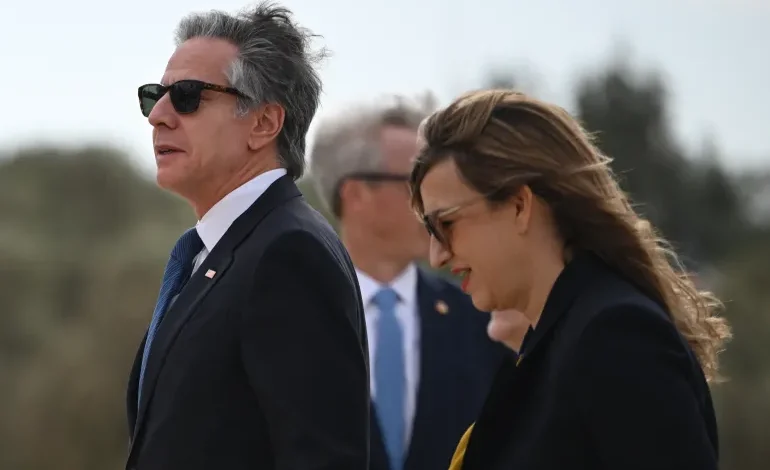Blinken Tours Middle East Seeking Unified Approach to Post-Assad Syria

US Secretary of State Antony Blinken embarked on a Middle Eastern diplomatic tour Thursday, aiming to garner regional support for a post-Bashar al-Assad Syria, Al Jazeera reports.
The trip, undertaken in the waning days of the Biden administration, focuses on establishing a unified approach to a political transition in Syria following al-Assad’s recent flight to Russia.
Blinken, speaking in Aqaba, Jordan, outlined the Biden administration’s vision for a Syria that is “inclusive, non-sectarian,” and protects the rights of all citizens, including minorities and women. He emphasized the critical role of the US-backed Syrian Democratic Forces (SDF) in combating ISIS, while acknowledging Turkey’s security concerns regarding the SDF’s proximity to its border.
The State Department said that Blinken’s efforts aim to prevent Syria from becoming “a base of terrorism or posing a threat to its neighbors,” a key concern for both Israel and Turkey. Israel, which has conducted hundreds of airstrikes in Syria since al-Assad’s departure, maintains a military presence along the Golan Heights. Turkey, meanwhile, has supported Syrian rebel groups battling the SDF, viewing the Kurdish-led force as an extension of the PKK, a group designated as a terrorist organization by Ankara.
Blinken’s diplomatic push coincides with a G7 statement calling for al-Assad to be held accountable for his alleged crimes. Simultaneously, National Security Advisor Jake Sullivan met with Israeli leaders in Jerusalem, before heading to Qatar and Egypt. Sullivan described Israel as “stronger” following its 14-month war against Hamas, which began with an October 7, 2023, attack on southern Israel.
Both Blinken and Sullivan’s missions aim to advance negotiations for a ceasefire in Gaza and secure the release of hostages held by Hamas. The recent ceasefire between Israel and Hezbollah, along with al-Assad’s removal from power, are seen as potential catalysts for a Gaza deal.
However, the Biden administration faces a tight timeline, with former President Donald Trump’s return to the White House scheduled for January 20. Trump recently warned of dire consequences in the Middle East if the hostages are not released before his inauguration. The White House has increased pressure on Hamas, stating the group is “increasingly isolated.”
Despite these diplomatic efforts, significant obstacles remain. Hamas demands an end to the war before releasing hostages, while Israeli Prime Minister Benjamin Netanyahu insists on maintaining the right to military action and opposes Hamas governing Gaza.








